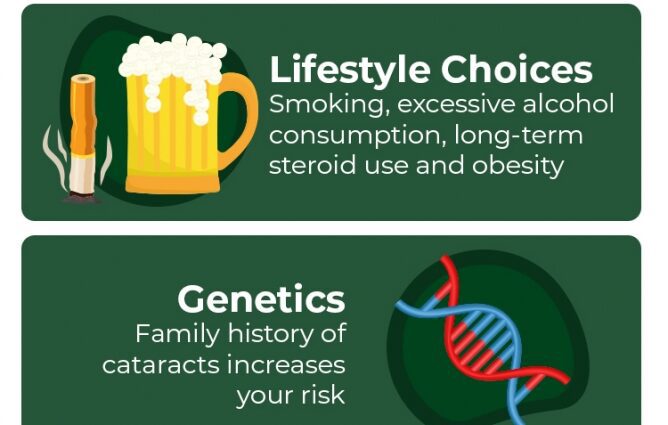Mataupu
Symptoms, people and risk factors for cataracts
Faʻailoga o le faʻamaʻi
- A progressively more view vevesi or obscured.
- Double vision or a pupula easier in the presence of bright lights. Glare considerably hinders night driving.
- A bland and less vivid perception of colors.
- A hazy vision. Objects appear as if they are behind a white veil.
- A more frequent need to change vision correction, because cataracts accentuate myopia. (However, people who are farsighted may initially feel that their vision is improving.)
Faamatalaga. Cataracts are painless.
The symptoms, people and risk factors of cataracts: understand everything in 2 min
Tagata e ono lamatia
Cataracts can affect anyone because its main risk factor is the aging of the eye. However, this risk is greater in people:
- have had diabetes for several years;
- having a family history of cataracts;
- who have had previous trauma or surgical treatment to the eye;
- who live at high altitudes or near the equator, more exposed to the sun’s ultraviolet rays;
- who have received radiation therapy, a commonly used treatment for cancer.
Faʻamatalaga o tulaga lamatia
- Aveina nisi Foma'i can cause cataracts (eg, corticosteroids, long term). A doctor should be consulted if in doubt.
- Exposure to ultraviolet rays from the lā. It increases the risk of developing senile cataracts. The sun’s rays, especially UVB rays, transform proteins in the lens of the eye.
- Smoking. the tapaʻa damages lens proteins.
- LEava malosi.
- A diet low in fruits and vegetables. Research shows a link between the onset of cataracts and a lack of antioxidant vitamins and minerals, such as vitamin C and vitamin E, selenium, beta-carotene, lutein and lycopene.










